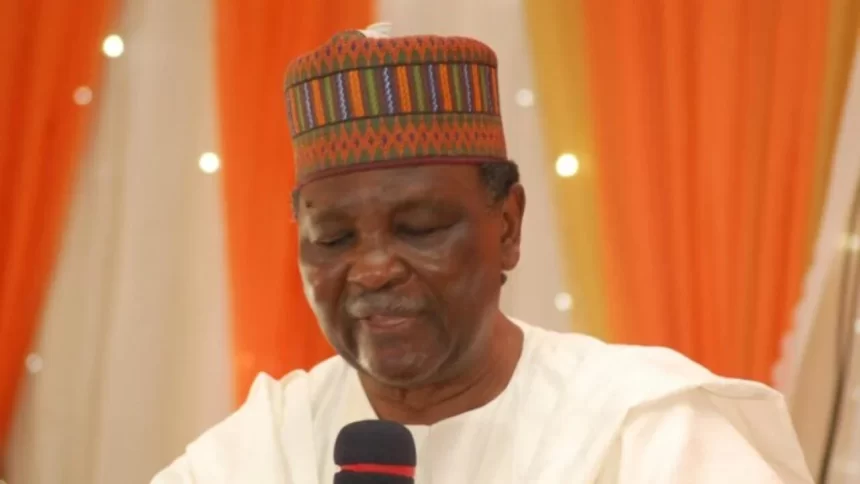The Pathway to a Global Nigeria: Harnessing Human Capital for Sustainable Development
By: Eric Adile
On October 18, 2024, during the 90th birthday lecture of General Yakubu Gowon in Abuja, Dr. Akinwunmi Adeshina, President of the African Development Bank, reignited a long-standing discourse: the possibility of a “Global Nigeria.” In his impassioned speech, Dr. Adeshina made a compelling case for Nigeria to reimagine its future, not through its natural resources but by harnessing its greatest asset—its people. Drawing on the stories of nations like China, Korea, Singapore, Malaysia, and Vietnam, Dr. Adeshina emphasized that strategic investment in human capital, particularly the youth, is the key to Nigeria’s global transformation.
His message aligns with the words of Strive Masiyiwa, the Zimbabwean billionaire and philanthropist, who once remarked, “The true wealth of Nigeria is its extraordinary human capital and passion for education. Unleash that, and no one can stop them.” Masiyiwa, who founded Econet Wireless Nigeria (now Airtel Nigeria), recalled being blown away by the sheer talent and qualifications of Nigerians at the inception of the GSM revolution. He lamented how Nigeria’s wealth in human capital remained underutilized, a sentiment echoed by Dr. Adeshina.
This commentary investigates Nigeria’s path to becoming a global player by unlocking its human capital potential, moving from a predominantly consumer economy to a manufacturing powerhouse. It reviews lessons from the success stories of Asian economies and Nigeria’s earlier achievements in agriculture, automobile assembly, manufacturing, and education. Finally, it delves into the critical role of sustainability education for both leaders and citizens in shaping Nigeria’s global future.
Nigeria’s journey to becoming a global force begins with a reevaluation of its approach to human capital. Dr. Adeshina’s emphasis on youth-driven development is grounded in the demographic reality that over 60% of Nigeria’s population is under the age of 25. With proper investment in education, skills training, and innovation, Nigeria’s young population could propel the country into a new era of economic growth and global relevance.
However, the current reality paints a different picture. Nigeria has long relied on its oil wealth to drive its economy. The sector, while lucrative, has done little to create widespread prosperity or generate sustainable development. The country has become a predominantly consumer-based economy, importing most of its goods rather than manufacturing them. In contrast, China, Korea, Singapore, Malaysia, and Vietnam have transformed their economies by strategically investing in their people, fostering a culture of innovation, and building strong manufacturing sectors.
In the late 20th century, these countries faced challenges similar to those Nigeria confronts today—large populations, high poverty rates, and weak infrastructure. Yet, by harnessing their human capital, they were able to transition from low-income nations to global economic powerhouses. This transformation was not accidental; it was the result of deliberate government policies focused on education, skills development, and innovation.
A key part of Dr. Adeshina’s argument is that Nigeria must shift from being a consumer nation to a manufacturing one. This transition requires more than just government rhetoric—it demands structural reforms, targeted investments, and a commitment to long-term planning.
China’s economic transformation offers valuable insights. In the 1980s, China embarked on a series of market-oriented reforms, opening its economy to foreign investment and encouraging innovation in manufacturing. These reforms, combined with a relentless focus on education and skills development, enabled China to become the world’s factory. Today, China’s manufacturing sector accounts for nearly 30% of its GDP, providing jobs for hundreds of millions of people and driving sustained economic growth.
Similarly, South Korea, once a war-torn and impoverished country, transformed itself into a global leader in technology and manufacturing through strategic investment in human capital. The country’s focus on education, innovation, and industrial policy led to the emergence of global conglomerates like Samsung and Hyundai, which have played a critical role in Korea’s economic success.
Malaysia and Vietnam also offer important lessons. Malaysia’s Vision 2020, introduced in 1991, set the country on a path toward becoming a high-income nation by investing in human capital, diversifying its economy, and promoting technology-driven industries. Vietnam, once one of the poorest countries in the world, has become a major player in global manufacturing through its focus on education, infrastructure development, and foreign investment.
For Nigeria, the path to becoming a global player must follow a similar trajectory. The country needs a clear, long-term vision that prioritizes human capital development, encourages industrialization, and promotes innovation. Nigeria’s journey to a global Nigeria will also depend on its ability to revive critical sectors that have historically driven its economy. Agriculture, once the backbone of Nigeria’s economy, has seen a steady decline in productivity and contribution to GDP. Yet, the potential for agriculture to provide jobs, boost exports, and support rural development remains immense.
In the 1960s and 1970s, Nigeria was a leading exporter of agricultural products such as cocoa, palm oil, and groundnuts. Today, the country imports more food than it exports, contributing to a growing trade deficit. To reverse this trend, Nigeria must invest in modern farming techniques, improve access to credit for farmers, and strengthen agricultural value chains. Furthermore, the country’s youth can be a driving force in the agricultural sector, leveraging technology and innovation to improve productivity and profitability.
In the manufacturing sector, Nigeria’s earlier successes in automobile assembly and consumer goods production offer a blueprint for future growth. During the 1970s and 1980s, Nigeria had a thriving automobile assembly industry, with companies like Peugeot, Volkswagen, and Leyland producing cars and trucks for the domestic market. However, the industry collapsed due to poor government policies, mismanagement, and a lack of investment in infrastructure.
Reviving Nigeria’s manufacturing sector will require government support in the form of favorable policies, infrastructure development, and access to capital for small and medium-sized enterprises (SMEs). Nigeria’s large population and growing middle class present a significant opportunity for the domestic production of goods that can meet local demand and generate export revenue.
Education is perhaps the most critical sector for Nigeria’s future. A well-educated population is the foundation of any global economy. Nigeria’s universities, once the pride of Africa, have struggled in recent decades due to underfunding, brain drain, and poor management. Rebuilding Nigeria’s educational system will require increased investment in infrastructure, teacher training, and curriculum development. The government must also create pathways for students to gain practical experience through internships, apprenticeships, and collaboration with industry.
No discussion of Nigeria’s future would be complete without acknowledging the contributions of General Yakubu Gowon. As Nigeria’s Head of State from 1966 to 1975, Gowon played a critical role in guiding the country through one of its darkest periods—the Nigerian Civil War. His leadership during and after the war helped to preserve the unity of the country and set the stage for its post-war recovery.
Gowon’s policies, including the introduction of the National Youth Service Corps (NYSC) and the creation of new states, helped to foster national unity and promote development across the country. His emphasis on education, infrastructure development, and public service laid the foundation for many of the achievements Nigeria enjoyed in the decades following the war.
As Nigeria reflects on its path to becoming a global player, it must draw inspiration from leaders like General Gowon, whose commitment to national unity and development continues to resonate today. As we honor General Yakubu Gowon for his contributions to post-war Nigeria, we must also look forward to the future, ensuring that Nigeria’s leaders and citizens are equipped with the knowledge and skills needed to build a sustainable, prosperous nation.
For Nigeria to achieve the status of a global nation, it must embrace the concept of sustainability. This is not only an environmental imperative but also an economic and social one. As the world shifts towards more sustainable practices, countries that fail to adapt will be left behind.
Sustainability education is critical for Nigeria’s leaders and citizens. Leaders must understand that sustainable development is about meeting the needs of the present without compromising the ability of future generations to meet their own needs. This requires a shift in mindset, where development is viewed not just in terms of economic growth but also in terms of environmental stewardship, social inclusion, and long-term prosperity.
For Nigerian citizens, particularly the youth, sustainability education can foster a sense of responsibility for the future of their country. By understanding the importance of sustainable practices, young Nigerians can become champions of innovation, driving the country’s transition to a more sustainable and globally competitive economy.
One of the biggest challenges to Nigeria’s global aspirations is the so-called “Japa syndrome”—the mass exodus of Nigerian professionals seeking better opportunities abroad. This brain drain deprives Nigeria of its most talented and skilled citizens, many of whom are critical to the country’s development.
To reverse this trend, Nigeria must create an environment that encourages its citizens to stay and contribute to national development. This means improving the quality of life through better education, healthcare, and job opportunities. It also means fostering a culture of innovation and entrepreneurship that allows young Nigerians to build successful careers at home.
The possibility of a global Nigeria is not a distant dream—it is a tangible goal that can be achieved through strategic investment in human capital, industrialization, and sustainability. As Dr. Akinwunmi Adeshina and Strive Masiyiwa have pointed out, Nigeria’s greatest asset is its people. By unleashing the potential of its human capital, Nigeria can transition from a consumer economy to a manufacturing powerhouse, and ultimately, a global player.
However, achieving this vision will require more than just rhetoric. It will require bold leadership, long-term planning, and citizens participation. The time for a Global Nigeria is now. All it takes is the will to unleash the extraordinary potential within.
As we celebrate General Gowon’s 90th birthday, we wish him continued strength and good health to contribute more to Nigeria’s development and sustainability.
(Eric Adile Iroajugh is the Executive Vice Chairman, Alikwomobu Center for Sustainability and Participatory Development– Phone No: 08188675284, Email: princeadile1@gmail.com\


Leave a Reply